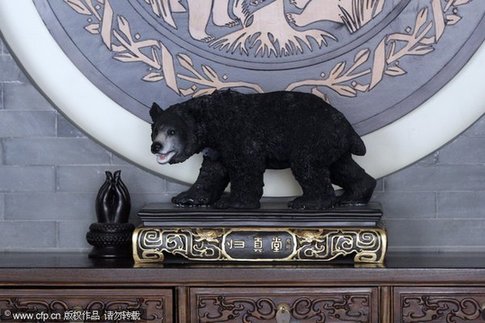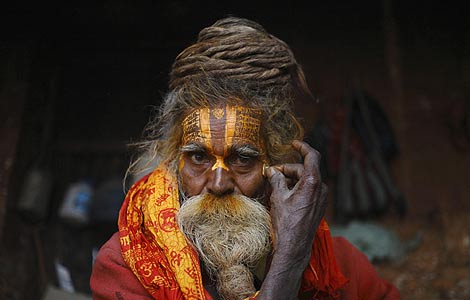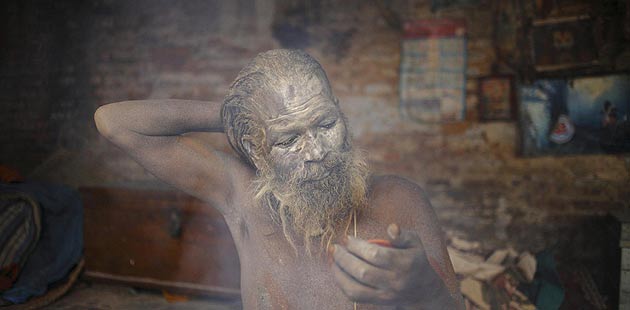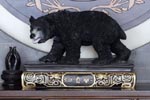Citing cruelty, celebs oppose IPO
Updated: 2012-02-16 11:24
By Jin Zhu (China Daily)
|
|||||||||

BEIJING - More than 70 public figures have signed a petition opposing an application for listing on the Shenzhen Stock Exchange submitted by a pharmaceutical company that makes medicine from bear bile.
The company, Guizhentang Pharmaceuticals, extracts bile from captive bears to make traditional Chinese medicines. Founded in 2000, the company is among 220 awaiting approval by the Growth Enterprise Board, according to the China Securities Regulatory Commission.
On Tuesday, the Ta Foundation, a private foundation concerned with animal welfare, submitted an appeal signed by 72 public figures, including well-known lawyers, TV hosts, actors and animal rights advocates.
Ding Junhui, famous Chinese snooker player, Chen Danqing, a well-known painter, and Cui Yongyuan, a TV host, are among the signatories.
"We hope the commission will not support the company's bid to become publicly listed," the group wrote in the letter.
"Animal welfare is an issue that is seldom considered when companies apply to be listed in China. But we hope government authorities will listen to our concerns," said Han Xia, a staff member of the foundation, on Wednesday.
The commission promised to respond to the letter within 15 workdays.
At present, the company keeps 470 bears, and it is expected to use the funds raised by the IPO to expand the size of its farm and the number of its bears to 1,200, according to its website.
The company's first attempt to become listed failed last year due to public opposition.
Bear bile is used in traditional medicine in China and other Asian countries because it is thought to have healing properties, such as detoxifying the body, cleansing the liver and improving vision.
In the 1980s, captive breeding replaced the original method of killing wild black bears to get the bile.
In 2011, the number of bear farms in China totaled 98 and it is estimated that about 20,000 black bears live on them, according to the Animals Asia Foundation.
Medical professionals say the bears are subjected to crude surgery that leaves permanent wounds in their abdominal walls and gall bladders, causing serious diseases and even death.
In 2010, Chinese e-commerce giant Alibaba Group Holding Ltd blocked trading of products related to bear bile on its online trade hubs, including Alibaba.com and Taobao.com.
They also targeted shark's fin in 2009, according to the company.
"So far, other products, including ivory, tiger bone and rhinoceros horn, are also banned for trading on our websites because animal protection now is of paramount concern at a time when the company is preparing to expand its business," said Gu Jianbing, director of public relations at Alibaba.
Related Stories
Analysts: IPOs to remain common in 2012 2012-01-05 08:01
IPO weakness drives shift by PE investors 2011-11-11 07:37
IPOs by Chinese firms drop 2011-09-02 18:05
Pre-IPO image polishing needed 2011-07-26 09:14
- Accenture opens lab for R&D
- Culture to be pillar industry
- Third-party auto insurance open to foreign firms
- Wen vows to speed up fiscal, financial reforms
- Alibaba seeks Yahoo CEO after talks: insider
- Experts: EU statement opens door to status
- China's FDI falls 0.3% in Jan
- Assembling ideas for Ikeas in China









